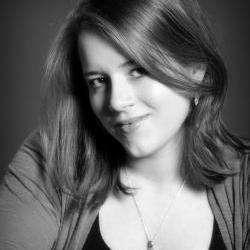
Emily Owen
Showing 43 of 43 articles
London
25 Jan 2015
Locke’s The Tempest: OAE steps back in time
London
04 Oct 2014
Franz Schubert in 1824
London
14 May 2014
An evening of Russian choral gems with the Holst Singers
London
09 May 2014
Orchestral sorcery at the Barbican from the BBC Symphony
London
22 Mar 2014
Matthew Rose the driving force in Mendelssohn's Elijah
London
18 Oct 2013
A Musical Experiment: The Clerks at The Royal Academy of Music.
London
12 Oct 2013
Britten's War Requiem at the Royal Festival Hall
London
08 Oct 2013
Berlioz, Beethoven and Brahms with the RPO at Cadogan Hall
London
03 Oct 2013
Matheuz and Orchestra Mozart play Beethoven at the Queen Elizabeth Hall
London
22 Sep 2013
Total Immersion: The Rite of Spring 2013 at the Barbican
London
19 Sep 2013
Mitsuko Uchida and Robin Ticciati with the LSO at the Barbican
London
06 Jul 2013
Gallicantus sing Lassus' Lagrime de San Pietro at Wigmore Hall
London
15 Jun 2013
Les Arts Florissants perform Monteverdi's Fifth Book of Madrigals at the Barbican
London
29 May 2013
The Tallis Scholars at 40, Gesualdo at 400 at Cadogan Hall
London
23 May 2013
Bridge, Britten and Beamish with the Academy of St Martin in the Fields at Cadogan Hall
London
16 May 2013
RAM Opera double bill: Dido and Aeneas and The Lighthouse
London
24 Apr 2013
The Tudor dynasty: Alamire perform at Cadogan Hall
London
16 Apr 2013
Handel's L'Allegro, il Penseroso ed il Moderato at the London Handel Festival
London
09 Mar 2013
Simon Keenlyside and Malcolm Martineau at the Wigmore Hall
London
05 Mar 2013
Stile Antico sing Masters of Europe in London
London
02 Mar 2013
A frivolous Così fan tutte: English Touring Opera at Hackney Empire
London
22 Feb 2013
Bach Unwrapped: Carolyn Sampson and the Academy of St Martin in the Fields at Kings Place
London
18 Feb 2013
Pekka Kuusisto: Bach and electronic improvisations
London
12 Feb 2013
L'elisir d'amore with OperaUpClose
London
08 Feb 2013
Insalata I Fagiolini at Cadogan Hall
London
02 Feb 2013
The Choir of King's College London at the Brandenburg Festival 2013
London
29 Jan 2013
The St Matthew Passion with the AAM and the Choir of King's College, Cambridge
New York City
19 Jan 2013
The Met live in HD at the Barbican: Maria Stuarda
London
30 Nov 2012
Britten's Five Canticles at the Wigmore Hall
London
01 Dec 2012
Jonathan Miller's Mikado returns to English National Opera
London
24 Nov 2012
Brahms Unwrapped: Natalie Clein plays the Cello Sonatas at Kings Place
London
13 Nov 2012
New wine in old bottles: Fretwork at the Royal College of Music
London
09 Nov 2012
Tieppo's Suggestions of Love at Lauderdale House
London
28 Oct 2012
Donizetti's Belisario at the Barbican
London
14 Oct 2012
The human comedy: Le Poème Harmonique at the Wigmore Hall
London
06 Oct 2012
English Touring Opera perform Britten's Albert Herring in London
London
02 Oct 2012
An evening with Gibbons: The Hilliard Ensemble and Fretwork at the Wigmore Hall
London
20 Sep 2012
A decadent night at the Russian opera: Grange Park Opera Rising Stars in Eugene Onegin
London
19 Sep 2012
A medieval fairytale at Kings Place: Roderick Williams sings Brahms
London
12 Sep 2012
Songs of Travel at the Wigmore Hall with Roderick Williams and Gary Matthewman
London
08 Sep 2012
British Youth Opera 25th anniversary season: The Bartered Bride
Corbridge
11 Aug 2012
Salon songs by candlelight at Corbridge Chamber Music Festival
Corbridge
11 Aug 2012
Gallic charm at the Corbridge Chamber Music Festival

